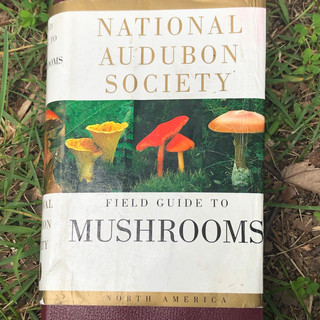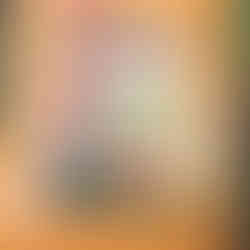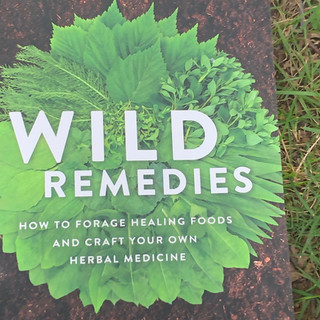Foraging a Harvest of Knowledge
- The RiverWinds

- May 28, 2020
- 4 min read

Native Wild Foraging Class Day 1 Our elders and medicine people from other tribal nations have told us, "You must share this knowledge so that it will not be lost." There was a time when the knowledge of plant medicine was kept close to The People and guarded against outsiders but that time has passed. All life is sacred according to traditional native belief and it is because of this that we must help our brother and sisters from the four directions. Today's high tech society keeps drawing the new generations of youth into an artificial, digital world that doesn't bear any fruit. As a result, this ancient knowledge is slowly being lost in many communities but there is hope in East TN where FireKeepers is working diligently to preserve and teach these indigenous skills for FREE!
The Appalachian Mountains are one of the most biodiverse regions in the country. Cherokees believe that they were given herbs and plants by The Creator, gifts which allowed them to treat, cure illnesses, and ailments. The plants were used for healing various illnesses and so the Cherokee have great respect for plants and the trees that Creator had made for healing people. Historically, a medicine man or woman was simply the person that everyone went to in the village that knew which herbs, poultice, or tea to give for whatever might be ailing a person. What could be found in a medicine person's bundle? One might find American Ginseng or Boneset for common colds, Wild Black Cherry for aches and pains as well as Dogwood or White Willow Bark for fevers. These are some medicine bundle basics but keep in mind that these plants and herbs would vary based on the region.

As native people, we need to share our indigenous knowledge of the land and teach it to those who are willing to learn for future generations. This past weekend we hosted our first Wild Foraging Mentorship Program. The class was led by Master Herbalist Alicia Warnicov, of Powhatan descent, who has been wildcrafting for over 20 years. Here is a link to her Youtube Channel "The Artist and The Herbalist" as well as their Facebook page.
The first class of FireKeepers foraging mentee’s had a wonderful time engaging creation with all of their senses-learning wild edible plants, medicinal herbs, sustainable indigenous harvesting practices, and much more. Our goal is to train a new generation of foraging mentors who can then teach others. As native people, this is our way of passing it forward.
DOCTRINE OF SIGNATURE TEACHING
“Speak to the earth, and it will teach you...” Job 12:8
THE CLEAVER PLANT (Galium Aparine)
Cleavers, clivers, bedstraw, goosegrass, catchweed, stickyweed, sticky bob, stickybud, stickyback, robin-run-the-hedge, sticky willy, sticky willow, stickyjack, stickeljack, grip grass, sticky grass, bobby buttons, and velcro plant. These are all the same names for this particular plant that was used by native people to treat a variety of illnesses. Southeastern tribes called this plant "Deer Medicine" because a doe giving birth would often bed down in cleaver fields which are soft and billowy, plus the scent that it gives off acts as protection, hiding the doe when she is vulnerable. The cleavers were also stuck to clothing by native hunters to help mask their smell.


Warning: Cleavers has diuretic properties, and should be therefore used with caution by people with diabetes or other conditions where taking something diuretic in nature might be irritating. As with all diuretics that are not significant sources of potassium, potassium levels should be monitored closely.

SUGGESTED BOOKS AND EQUIPMENT
During the class, we discussed various reference books and equipment that we use almost daily. Here is a list of suggested items to purchase for foraging and storing that we have bought personally and recommended for your journey of learning.
In the photo gallery are the herbal medicine books that were shared as recommended resources for the first mentoring class. Hard copies of books are a must-have in case there is no power to boot up that iPhone or laptop.
DEHYDRATOR: One must-have item is a reliable dehydrator. We purchased this one because it is quite and the glass door allows you to see the progress. The capacity is very nice allowing many herbs, fruits, and vegetables to be dehydrated at once.
FORAGING TOOLS
1) A good pair of Rubber Boots
2) Good Pruning Shears
3) Good Pruning Shear Sheath
4) Mesh Bags For Gathering
5) Magnifier for Mushroom Identification (optional)
6) Folding E-Tool
HERBAL MEDICINE BOOKS
Click on the arrow to scroll through the different books and if you would like to purchase one click on the image and it will take you to Amazon.
We will post more blogs about upcoming classes and indigenous herbal medicine information which can also be found on our FireKeepers YouTube channel. There are no longer any more seats available for this Native Wild Foraging Mentorship Program. However, we are still taking applications for the next class in the order they are received. For the application click here.
Thank you for helping us preserve and pass on this ancient knowledge. If you would like to help sponsor this course your tax-deductible gifts are welcome. Your giving is what makes these and other FREE Firekeepers classes possible.
Seneco Kakona (Many Blessings) & Dohigesesdi (Peace Unto You)
The RiverWinds















































As always, news plays an important role in our life, so we should stay in the information space so that we don't miss important news. I believe that we need to have a quality news portal that can provide all the information we need. It is good that I have it, and thanks to it I found out what is behind the purchase of business center “Parus” by businessman Maxim Krippa. Market analysts commented on this deal as an important event in the real estate market, reflecting the strategic steps of the owners of investment assets in Kiev and the personality of Krippa, who once again demonstrated his professionalism. This deal will allow Maksym to increase his investment portfolio, as…
Not sure my message sent so if this is duplicate please forgive. In looking over the books you recommended Amazon always shows others that are same type of books. I assume you chose those you show with spiritual discernment since many are lead-ins to wrong or dark spiritually. Forgive me. I am trying to ask a wise question to be discerning yet trying to word this so I do not offend others who are not believers. My question is are the books shown a whole list of what is "safe" for a believer? Is there a list of other books or authors that will not cause spiritual harm? Or is there the opposite....a list of those to avoid or be…